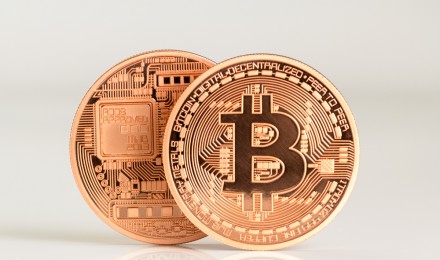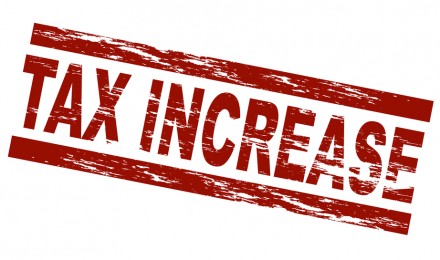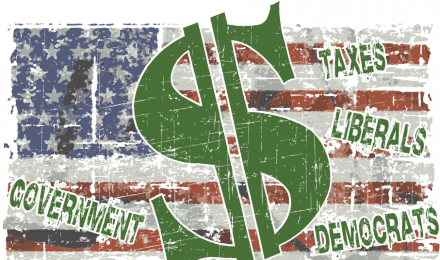As the New Year begins investor optimism is often at its peak. A fresh start is the general thinking and search for the 2014 winners is in full swing. But alas, it is also a time when the paperwork for last year’s taxes begins to be delivered. And anyone with big capital gains knows what that means. The IRS wants its cut and that means that it is time to pay everyone’s investment partner. But there was one spectacular investment last year that will not be sending you any capital gains reports or any paper at all. Not a statement, not a 1099B, not even so much as a thank you note. But don’t think that means that Uncle Sam can be ignored. Bitcoin exploded into the public consciousness in a big way this year. From a price of, well nearly free for some, people the crypto currency soared to over a thousand dollars per “coin”. Those that were “mining” (a term used to describe the process whereby the Bitcoin code is “solved”) in the years prior to 2013 had no other costs then the extra electricity their computer may have used while searching for Bitcoin nuggets. Their reward was some Bitcoins in exchange for the use of their computer power. But even those that purchased them on the open market had huge gains this year. Bitcoin could be had for about $13 at the beginning of 2013 and under $100 for the majority of trading days. And, of course many people traded in and out of the currency as it had its roller coaster of a ride last year. But here’s the thing about those trades: they are all taxable. And if you are thinking that one of Bitcoin’s claim to fame is its anonymity, then you may be under a false impression:
The most important answer is yes – bitcoin is taxable and no it is not anonymous.
The beauty of bitcoin is that it’s distributed and there’s a public record of every transaction. Thus, every transaction is always recorded.
Yes, there is that. What is often forgotten about BitCoin’s program is that yes, the buyer and seller may not know who the other person is, nor does Bitcoin itself. But there is a record forever and ever. And even the bumbling government could figure out that those Bitcoins went to your “wallet” and when you sold them, gave them away or moved them to another location. Of course, it is possible to make one’s Bitcoins hard to find with a “cold” wallet (a storage space unconnected to the internet) but that is a lot harder if one wants some of that old-fashioned fiat currency, like the dollar. In that case, a buyer is needed. And while you may be able to find a few locals that will meet up with you for a trade, any big trades will almost certainly have to go through an exchange. Once that happens, one’s anonymity is gone, as the exchange needs to know who to make the check out to. Whether one likes it or not though, Uncle Sam looks at your Bitcoin profit as a capital gain:
Bitcoin gains are taxed the same as capital gains from stock investments because both are “assets.” Thus, knowing that you did something with your bitcoins to create a taxable event is the first step. The next step is figuring out, if you owe any taxes.
Now, don’t get me wrong, the chances that a large percentage of Bitcoin enthusiasts are going to report every trade they made to the IRS are small indeed. Forget that the hardest core among the group hates the fiat system and thinks that the U.S.A. is on a path to doom. It’s just that many (if not most) hardly kept track of every trade. And even if they did keep track, there is bound to be a chunk of people that barely even know the meaning of the term “capital gains”. Add to that those that figure there is no tax because there is no 1099 or those that think that capital gains only apply to stocks or even those that really think the system is anonymous and it all adds up to many an investor in Bitcoins stiffing the IRS. While that sounds great, don’t forget that the record never goes away. And if they don’t get you this year or next year, they can still get you. Now, if I had to guess it’s likely that many people are rooting for you to get away with not paying the IRS, but the unfortunate truth is that they are entitled by law to a chunk ( a giant chunk) of the gains you made selling Bitcoin. Alas.
As the New Year begins investor optimism is often at its peak. A fresh start is the general thinking and search for the 2014 winners is in full swing. But alas, it is also a time when the paperwork for last year’s taxes begins to be delivered. And anyone with big capital gains knows what that means. The IRS wants its cut and that means that it is time to pay everyone’s investment partner. But there was one spectacular investment last year that will not be sending you any capital gains reports or any paper at all. Not a statement, not a 1099B, not even so much as a thank you note. But don’t think that means that Uncle Sam can be ignored. Bitcoin exploded into the public consciousness in a big way this year. From a price of, well nearly free for some, people the crypto currency soared to over a thousand dollars per “coin”. Those that were “mining” (a term used to describe the process whereby the Bitcoin code is “solved”) in the years prior to 2013 had no other costs then the extra electricity their computer may have used while searching for Bitcoin nuggets. Their reward was some Bitcoins in exchange for the use of their computer power. But even those that purchased them on the open market had huge gains this year. Bitcoin could be had for about $13 at the beginning of 2013 and under $100 for the majority of trading days. And, of course many people traded in and out of the currency as it had its roller coaster of a ride last year. But here’s the thing about those trades: they are all taxable. And if you are thinking that one of Bitcoin’s claim to fame is its anonymity, then you may be under a false impression:
The most important answer is yes – bitcoin is taxable and no it is not anonymous.
The beauty of bitcoin is that it’s distributed and there’s a public record of every transaction. Thus, every transaction is always recorded.
Yes, there is that. What is often forgotten about BitCoin’s program is that yes, the buyer and seller may not know who the other person is, nor does Bitcoin itself. But there is a record forever and ever. And even the bumbling government could figure out that those Bitcoins went to your “wallet” and when you sold them, gave them away or moved them to another location. Of course, it is possible to make one’s Bitcoins hard to find with a “cold” wallet (a storage space unconnected to the internet) but that is a lot harder if one wants some of that old-fashioned fiat currency, like the dollar. In that case, a buyer is needed. And while you may be able to find a few locals that will meet up with you for a trade, any big trades will almost certainly have to go through an exchange. Once that happens, one’s anonymity is gone, as the exchange needs to know who to make the check out to. Whether one likes it or not though, Uncle Sam looks at your Bitcoin profit as a capital gain:
Bitcoin gains are taxed the same as capital gains from stock investments because both are “assets.” Thus, knowing that you did something with your bitcoins to create a taxable event is the first step. The next step is figuring out, if you owe any taxes.
Now, don’t get me wrong, the chances that a large percentage of Bitcoin enthusiasts are going to report every trade they made to the IRS are small indeed. Forget that the hardest core among the group hates the fiat system and thinks that the U.S.A. is on a path to doom. It’s just that many (if not most) hardly kept track of every trade. And even if they did keep track, there is bound to be a chunk of people that barely even know the meaning of the term “capital gains”. Add to that those that figure there is no tax because there is no 1099 or those that think that capital gains only apply to stocks or even those that really think the system is anonymous and it all adds up to many an investor in Bitcoins stiffing the IRS. While that sounds great, don’t forget that the record never goes away. And if they don’t get you this year or next year, they can still get you. Now, if I had to guess it’s likely that many people are rooting for you to get away with not paying the IRS, but the unfortunate truth is that they are entitled by law to a chunk ( a giant chunk) of the gains you made selling Bitcoin. Alas.






